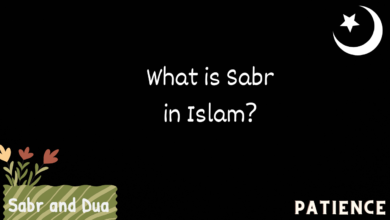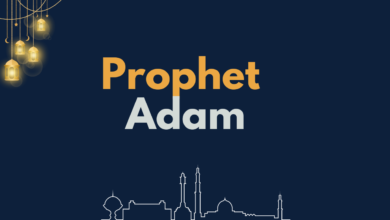Where are the 25 Prophets of Islam in order?
"The Significance of Adam and Eve in Islamic Tradition"
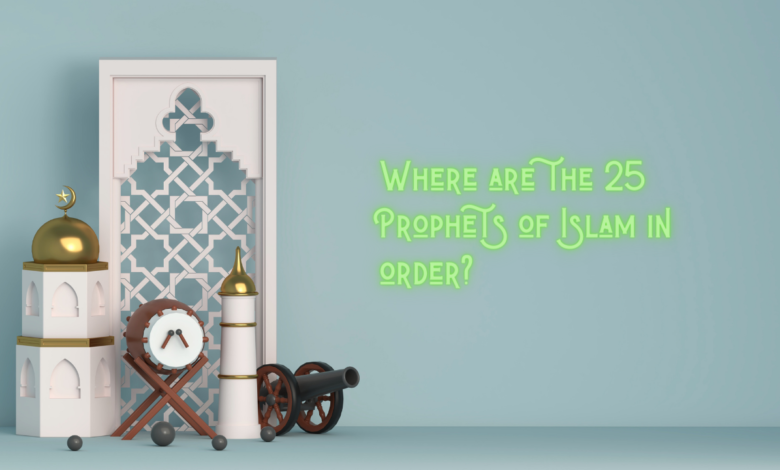
Where are the 25 Prophets of Islam in order?
The 25 prophets of Islam are a group of prophets mentioned in Islamic tradition. They are not listed in a specific order in Islamic scripture.
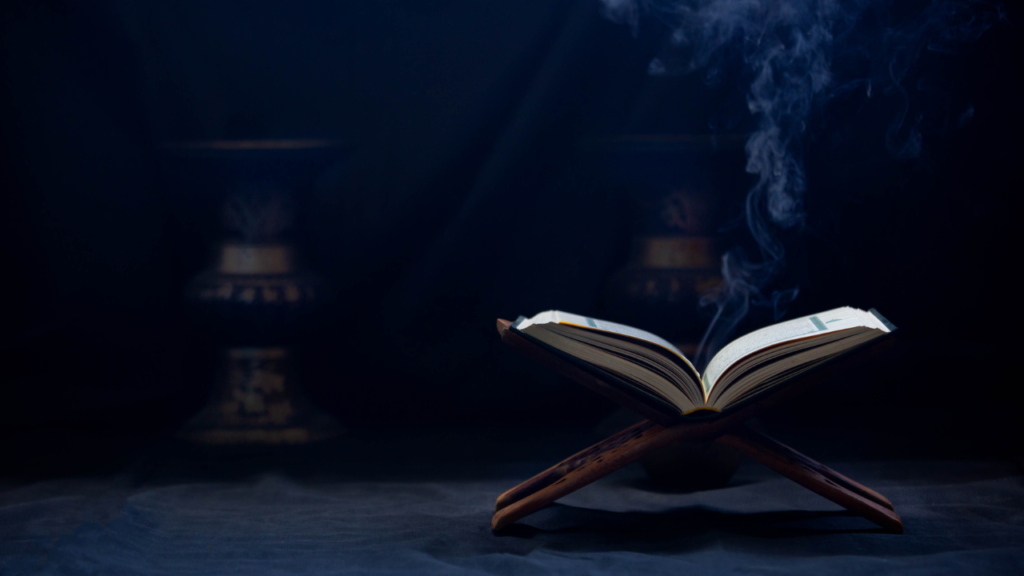
Introduction
Islam, one of the world’s major religions, holds a profound belief in the prophethood, with the Quran mentioning the names of 25 prophets who were chosen by Allah to guide humanity. These prophets played a pivotal role in delivering the divine message and spreading the teachings of monotheism. In this article, we will explore the 25 prophets of Islam in chronological order and discuss their significance in Islamic history.
Adam (Adam)
Adam is recognized as the first prophet in Islam. He and his wife, Hawwa (Eve), were the first human beings created by Allah. Their story is central to the Quran, representing the creation and fall of mankind.
Idris (Enoch)
Idris is considered the second prophet in Islam. He is mentioned briefly in the Quran and is known for his wisdom and knowledge.
Nuh (Noah)
Nuh is a well-known prophet who built an ark to save believers and animals from a great flood, as directed by Allah. His story is recounted in the Quran in detail.
Hud (Eber)
Hud was sent as a prophet to the people of ‘Ad, who had deviated from the path of righteousness. His story emphasizes the consequences of arrogance and disobedience.
Saleh (Methuselah)
Saleh was a prophet sent to the people of Thamud. His story centers on the miraculous she-camel and the people’s refusal to heed the divine message.
Lut (Lot)
Lut was a nephew of the prophet Ibrahim (Abraham) and was sent to the people of Sodom and Gomorrah. His mission was to guide them away from sinful behavior.
Ibrahim (Abraham)
Ibrahim is a central figure in Islam and is often referred to as the “Father of Prophets.” His story encompasses his unwavering faith and his willingness to sacrifice his son, Isma’il (Ishmael), as a test of his devotion.
Isma’il (Ishmael)
Isma’il is considered a prophet in Islamic tradition. He and his mother, Hagar, played a crucial role in the construction of the Kaaba in Mecca.
Ishaq (Isaac)
Ishaq, the son of Ibrahim and Sarah, is also recognized as a prophet. His descendants played a significant role in the history of the Israelites.
Yaqub (Jacob)
Yaqub, the son of Ishaq, is another prophet in the Abrahamic tradition. His story includes the struggle for leadership among his sons, especially Yusuf (Joseph).
Yusuf (Joseph)
Yusuf is celebrated for his righteousness and patience in the face of adversity. His story is narrated in detail in the Quran and highlights themes of trust in Allah and forgiveness.
Shu’ayb (Jethro)
Shu’ayb was sent as a prophet to the people of Madyan. His story focuses on justice, honesty, and the rejection of dishonest practices.
Ayyub (Job)
Ayyub is known for his unwavering patience and faith in Allah, even during severe suffering and trials. His story serves as an inspiration for believers facing adversity.
Dhulkifl (Ezekiel)
Dhulkifl is a less-known prophet, and not much information is available about him in Islamic tradition. Some scholars identify him with Ezekiel from the Bible.
Yunus (Jonah)
Yunus is famous for being swallowed by a giant fish and then saved by Allah. His story emphasizes repentance and seeking forgiveness.
Musa (Moses)
Musa is a prominent prophet who led the Israelites out of Egypt and received the Ten Commandments on Mount Sinai. His story is detailed in the Quran.
Harun (Aaron)
Harun, the brother of Musa, was also a prophet and played a significant role in the guidance of the Israelites during their journey.
Dawud (David)
Dawud is renowned for his wisdom, leadership, and the Psalms (Zabur) given to him by Allah. He is considered a prophet and a king.
Sulayman (Solomon)
Sulayman, the son of Dawud, is celebrated for his wisdom, wealth, and the ability to communicate with animals and jinn. He is considered a prophet and a king.
Ilyas (Elias)
Ilyas is mentioned briefly in the Quran and is known for his steadfastness in delivering the message of monotheism.
Alyasa (Elisha)
Alyasa, like Ilyas, is briefly mentioned in the Quran, and little is known about his prophethood.
Yunus (Jonah) (Again)
Some Islamic traditions believe there were two prophets named Yunus, while others consider it a repetition in the Quran.
Zakariya (Zechariah)
Zakariya and his wife, Elizabeth (known as Maryam’s mother), were blessed with the miraculous birth of Yahya (John the Baptist).
Yahya (John the Baptist)
Yahya was a prophet and a cousin of Isa (Jesus). His birth was a miracle, and he played a significant role in preparing the way for Isa.
Isa (Jesus)
Isa is a revered prophet in Islam who is believed to have been born miraculously to Maryam (Mary). He performed miracles, preached monotheism, and is expected to return in the future.
Also check
- what does Ra mean in Islam?
- What does A.S mean in Islam?
- Why study Islam?
- What is Azza in Islam?
- Do you have to hide your period in Islam?
Conclusion
The 25 prophets of Islam, sent by Allah to guide humanity throughout history, represent a diverse group of individuals who each played a crucial role in spreading the message of monotheism and righteousness. Their stories serve as a source of inspiration and guidance for Muslims, emphasizing the importance of faith, obedience, and patience in the face of trials and adversity. Recognizing these prophets in chronological order is a testament to the rich tapestry of prophethood in Islamic tradition.
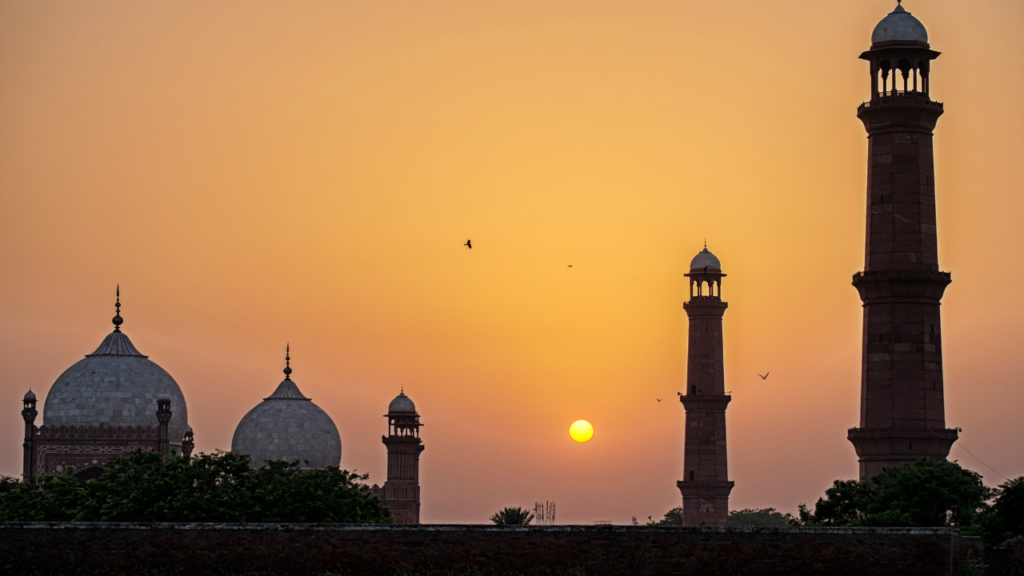
Certainly! Here are some frequently asked questions (FAQs) about the 25 prophets of Islam in order:
Who are the 25 prophets of Islam in order?
The 25 prophets of Islam are a group of prophets mentioned in Islamic tradition. They are not listed in a specific order in Islamic scripture.
Are the 25 prophets of Islam mentioned in the Quran?
The Quran mentions the names of some prophets, but it does not provide a specific list of 25 prophets in a particular order.
Is there a standardized list of the 25 prophets in Islam?
No, there is no standardized list of the 25 prophets in Islam that is universally agreed upon. Different Islamic traditions and scholars may have variations in their lists.
Which prophets are commonly included in the 25 prophets of Islam?
Commonly mentioned prophets include Adam, Noah, Abraham, Moses, and Jesus, among others. However, the exact list can vary.
Why is the number 25 associated with the prophets of Islam?
The number 25 is not explicitly mentioned in Islamic scripture. It is possible that some scholars and traditions have compiled lists of prophets based on their interpretations of various Islamic texts.
Are all the 25 prophets mentioned in the Quran?
No, not all of the 25 prophets are mentioned by name in the Quran. Some are mentioned, while others are known from other Islamic sources and traditions.
Can you provide a commonly accepted list of the 25 prophets of Islam?
There is no universally accepted list of 25 prophets in Islam. Lists may vary depending on the source and interpretation.
Are the 25 prophets considered equally important in Islam?
In Islam, all prophets are respected and considered important, but the significance of each prophet may vary based on their respective roles in conveying God’s message.
Is there a specific order in which the 25 prophets are mentioned in Islamic literature?
The order in which prophets are mentioned can vary between different sources and traditions. There is no fixed order in the Quran or Hadith.
How can I learn more about the 25 prophets of Islam?
To learn more about the prophets of Islam, you can consult Islamic books, scholars, and resources that provide information about their lives and teachings. Reading the Quran and Hadith can also provide valuable insights.

